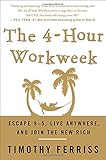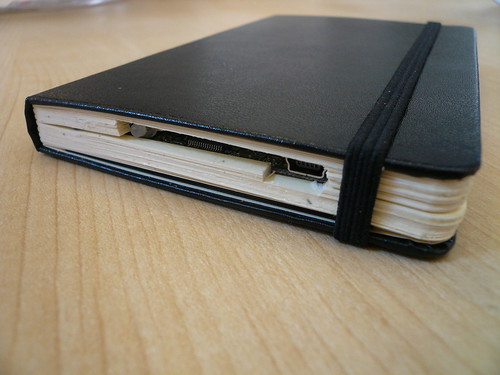Merlin’s weekly podcast with Dan Benjamin. We talk about creativity, independence, and making things you love.
Life HacksProcrastination, the "Unschedule," and re-learning how to walkMerlin Mann | Oct 4 2007How to Unschedule your work and enjoy guilt-free play Chanpory, over at LifeClever, has a useful piece on what Neil Fiore calls "The Unschedule:"
Like a couple of the exercises in Fiore's book (Oy, vey, who actually keeps a "procrastination diary?"), I think the Unschedule is best seen as a fascinating way to think about thinking. read more »8 Comments
POSTED IN:
Dear Me: Get to workEthan Schoonover | Sep 24 2007The ProblemGTD is all about rapid, intuitive selection of what you need to be working on now. Whip out your context list appropriate for the time-place-opportunity-space you are in now. Scan through it, then do. For the longest time I was having a problem with this. I'd scan through my context lists and I'd see things like: read more »POSTED IN:
GrandCentral: For a "life-hackier" phoneMerlin Mann | Sep 7 2007I do a lot these days to get pickier about where my time and attention go, and keeping unnecessary phone calls at bay is near the top of the hit list. For years now, I've pled for "Spam Assassin" or something like regular expressions for my phone. GrandCentral may not be that smart yet, but it's years ahead of the options I've seen from landline carriers. The features of Google's recent acquisition are many and powerful, but a few of my own favorite bits bubble up in this screengrab I took this morning (from a robot UPS phone call, alerting me to a signature-required package that's out on the truck). I can't imagine going back to typical phone options after having access to: read more »POSTED IN:
Peter Walsh's clever hanger trickMerlin Mann | Aug 13 2007
Here's one of my favorite life-hacky tips from Peter Walsh (guy from Clean Sweep, author of It's All Too Much, and inspiration for my recent War on Clutter). After you've done a major purge of your closet, remove all the remaining clothes that live on hangers, and put them back in backwards, such that the open end of each hanger now faces you. Got it? Then, mark your calendar for six months (or whatever) from today, and go back to your business as usual. Except that after every time you wear a shirt or a jacket or a skirt or what have you, when you replace the item, make sure the hanger faces the opposite/usual way (with the opening in the back). When your n months have passed, and your calendar reminds you that it's time, open your closet and remove every piece of clothing on a backward hanger; the chances are good you can give it away without the slightest pain, because you just clearly demonstrated that you don't wear it. Here's why I love this. read more »POSTED IN:
DailyLit: 5-minute literature chunks, via email or RSSMerlin Mann | Aug 1 2007DailyLit: Read books by email and RSS. To know me today, you'd never imagine how many hundreds of pages a week I read in college. Surprises me, anyhow. While I've devolved into an accomplished skimmer of Harper's and the The New York Times Magazine, I rarely find (or, make) the time to finish a whole book about anything that's not related to "work." That's why I'm intrigued by DailyLit, a service that leverages rather than battles the tendency to hang out online. The idea is simple enough: select a "free" book that appeals to you, then, every day or two, via either email or RSS, the DailyLit robot sends you a section that's readable in about five minutes. If you want more at any time -- the digital equivalent of turning the page -- just click to have the next installment sent, then keep on a'reading. The variety of available selections is handsome, including favorites like Tristram Shandy, The Autobiography of Benjamin Franklin, The Devil's Dictionary and over 400 more. Feeling ambitious? Try War and Peace (675 5-minute parts), The Count of Monte Cristo (581 parts), or Don Quixote (448 parts). Want something a little lighter? You can't go wrong with Candide (42 parts) or A Modest Proposal (4 [still hilarious] parts). read more »POSTED IN:
Still awesome, still works: Request library books from Amazon pagesMerlin Mann | Jul 10 2007Jon Udell: The LibraryLookup Bookmarklet Generator I covered this one back in the bronze age of 43 Folders, but I wanted to highlight the awesomeness again today for those who might not have seen it the first time around. As described in September, 2004:
At some point over the years, Jon's bookmarklet fell out of my favorites bar (J'accuse, Amazon Prime). But today I was able to recreate my bookmarklet in about ten seconds, and now Bobos in Paradise is en route to the Parkside Library. To modernize the tip just a bit, I'll mention that this (and many other browser tasks involving entering passwords) gets so much easier with the amazing 1Passwd. In this case, you can tell the app to remember your library card number and PIN and autofill the library login page automagically. POSTED IN:
Unclutterer talks with "Clean Sweep" host, Peter WalshMerlin Mann | Jun 22 2007Peter Walsh answers questions for Unclutterer.com Thanks to my self-imposed media tunnel vision (and the bulging TiVo that enables it), I've apparently managed to miss a show on TLC called Clean Sweep that sounds like it's potentially up my alley. I guess the idea is that they parachute in to crazy-messy houses and help the harried occupants affect a makeover. The wonderful Unclutterer.com recently interviewed the show's host, Peter Walsh, and he had a couple interesting things to say about origins of clutter that get to the root cause:
Here's Walsh's new book: It's All Too Much: An Easy Plan for Living a Richer Life with Less Stuff. Already ordered our household a copy. read more »POSTED IN:
Pmarca productivity: Excellent tips for getting through the dayMerlin Mann | Jun 5 2007blog.pmarca.com: The Pmarca Guide to Personal Productivity What a fantastic post. And so many great suggestions that I'm hesitant to choose a sample...so I'll limit myself to three:
Most of the tips on this page strike me as being very practical, real-world, battlefield advice that works. And even if you can't totally avoid a schedule or totally keep email checking down to twice a day, it won't hurt to soak up the spirit of these ideas and let them move by osmosis into the places where they can do you some good. Shake it up a little. Highly recommended for anyone who likes 43-folders-esque stuff. (And triple credit for the Robert Evans reference. Did it make me happy? You bet your ass it did.) POSTED IN:
Building a Moleskine hard drive caseMerlin Mann | Apr 25 2007zonageek: blog: The Geekster Moleskine Oh, this is a fun mashup of two things I love. Transforming a standard Moleskine sketchbook into an external hard drive:
Clever, geeky stuff. POSTED IN:
Brian Oberkirch on reducing noise and stealing back attentionMerlin Mann | Apr 20 2007Trimming the attention sails at Like It Matters < div style="float:right; margin: 0px 0px 5px 15px;"> 
The 4-Hour Workweek
by Timothy Ferriss Friend of the Folders, Brian Oberkirch, has gone on a tempo-attentional crash diet:
I've met with Tim Ferriss a couple times (fascinating guy) and have a galley copy of his new book sitting on my desk right now. With what Brian says (combined with the raves for the book I heard from a couple folks I trust last night), I expect I'll be starting into it today. Back to Brian's project: while you may not necessarily need to make your world as completely devoid of noise and distraction as Brian has, I encourage you to review his list. There's a gold mine of tips in there for ways you might also choose to wrest back your attention and start responsibly firewalling your time. Loathe as I am to admit it, I've recently had to adopt one of Brian's dicta and have already used it twice today:
Anything you'd add? Got a felonious time burglar you've recently arrested? POSTED IN:
|
|
| EXPLORE 43Folders | THE GOOD STUFF |




